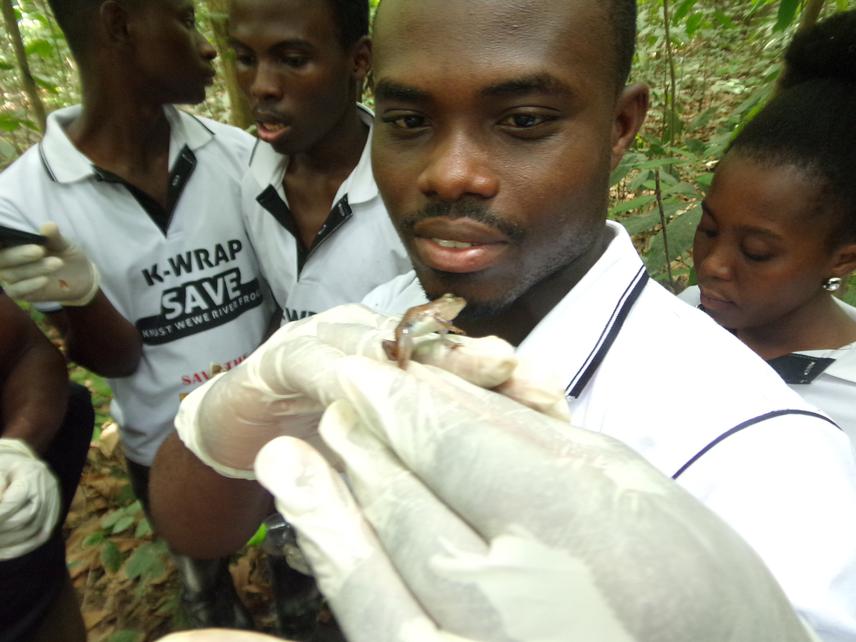Kojo Kwakye Ofori-Amanfo
Other projects
The project (K-WRAP) seeks to restore habitat and increase awareness for the long-term protection of amphibians at KNUST Wewe River.

Southern Ghana’s Wewe River (Wewe also spelt Wiwi in some literature), its forest and wetlands form part of the Upper Guinean Forest, which is one of the world’s 34 biodiversity hotspots. Up until very recently it was often described by ecologists as “oasis of tropical biodiversity in the chaos of eastern Kumasi.” At the KNUST campus the Wewe River forms part of wetlands and a 12.9-ha remnant upland forest, which altogether provide critical habitats for at least twelve amphibian species (www.savethefrogs.com/countries/ghana/knust). Also jointly owned by four communities (Ayeduase, Kotei, Ahensan and Ayigya), local people see this area as “wasteland” and dump water and liquid waste disposals. There is also widespread illegal farming activities and continuous extraction of bamboo and trees by local people.
The KNUST Wewe River Amphibian Project (K-WRAP) is an initiative to improve the amphibian habitat conditions, and engage university students and local stakeholders for the protection of the amphibian fauna through a long-term monitoring and environmental awareness programme. K-WRAP will coordinate a team of student volunteers to restore an estimated 4-ha area of Wewe River and wetland. We will replant critical habitat areas with 2000 seedlings of four native tree species Terminalia superba, Ceiba pentandra, Terminalia ivorensis and Triplochiton scleroxylon.
Another key component of K-WRAP is to establish long-term monitoring study areas for both species and habitats. We will select permanent sites and establish both visual and acoustic sampling routes. We will also provide quantitative assessments of relevant habitat characteristics (water depth, canopy cover and aquatic vegetation). We will record geographic coordinates and develop maps for all sampling areas. This will enable us to build a comprehensive database of amphibian species diversity and abundance along a 6-km section of the KNUST Wewe River. Our database will include multiple photos of species and will be shared at the SAVE THE FROGS! Ghana KNUST website, www.savethefrogs.com/countries/ghana/knust. The database is to be the first online repository of the amphibians of any given area in Ghana. Such information will also serve as an effective tool in long-term monitoring of the species population recovery and ecosystem health of the wetland.
K-WRAP is also aimed through hands-on field experiences and workshops, to enhance the expertise of university students in the proper methods of surveying and monitoring amphibians, and will educate farmers, illegal loggers and schoolchildren about the importance of Ghana’s amphibians.